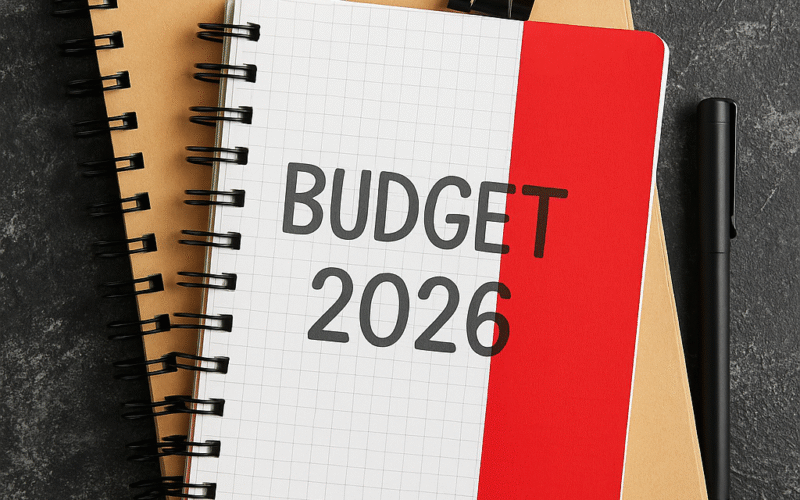Malta’s Budget 2026, presented on 27 October 2025 under the theme “A Stronger Economy, a Future for Our Children,” reflects a country intent on protecting its social model while sustaining growth.
It is a practical, people-focused budget — not dramatic, but carefully designed to maintain stability, ease household pressures, and reward long-term work and investment.
The government projects GDP growth at 4.1 percent, inflation easing to 2.2 percent, and a deficit reduction to 2.8 percent of GDP. These numbers point to gradual fiscal consolidation while preserving room for meaningful social and economic initiatives.
Families and Pensions at the Centre
At the heart of this year’s budget is support for families, pensioners, and those most affected by the cost of living.
The Cost-of-Living Adjustment (CoLA) for 2026 is set at €4.66 per week, continuing the policy of full wage compensation for inflation. Pensioners will receive an additional increase of up to €13.50 per week, reflecting the government’s ongoing commitment to improving retirement income.
From next year, all pensioners will become fully exempt from income tax — a landmark change that aims to enhance dignity in retirement and provide greater financial security.
For parents, the tax-free thresholds have been raised and will continue to expand gradually until 2028, reducing the burden on working families. The children’s allowance will increase by €417 per child per year for families earning under €23,000, extending targeted help where it matters most.
In education, students in Years 10 and 11 will receive a €500 digital support grant, and parents with children in post-secondary education will benefit from an additional €500 per child, ensuring technology access and smoother learning transitions.
Overview of the Tax Rates
Check the updated tax brackets below to see how the budget 2026–2028 adjustments apply to parents and families across different income levels.
Married rates with one child
| Tax rate | 2026 income (€) | 2027 income (€) | 2028 income (€) |
|---|---|---|---|
| 0% | 0–17,500 | 0–20,000 | 0–22,500 |
| 15% | 17,501–26,500 | 20,001–30,000 | 22,501–33,500 |
| 25% | 26,501–60,000 | 30,001–60,000 | 33,501–60,000 |
| 35% | 60,001+ | 60,001+ | 60,001+ |
Married rates with two or more children
| Tax rate | 2026 income (€) | 2027 income (€) | 2028 income (€) |
|---|---|---|---|
| 0% | 0–22,500 | 0–30,000 | 0–37,000 |
| 15% | 22,501–32,000 | 30,001–41,000 | 37,001–50,000 |
| 25% | 32,001–60,000 | 41,001–60,000 | 50,001–60,000 |
| 35% | 60,001+ | 60,001+ | 60,001+ |
Parent rates with one child
| Tax rate | 2026 income (€) | 2027 income (€) | 2028 income (€) |
|---|---|---|---|
| 0% | 0–14,500 | 0–16,000 | 0–18,000 |
| 15% | 14,501–21,000 | 16,001–24,500 | 18,001–28,000 |
| 25% | 21,001–60,000 | 24,501–60,000 | 28,001–60,000 |
| 35% | 60,001+ | 60,001+ | 60,001+ |
Parent rates with two or more children
| Tax rate | 2026 income (€) | 2027 income (€) | 2028 income (€) |
|---|---|---|---|
| 0% | 0–18,500 | 0–24,000 | 0–30,000 |
| 15% | 18,501–25,500 | 24,001–33,500 | 30,001–42,000 |
| 25% | 25,501–60,000 | 33,501–60,000 | 42,001–60,000 |
| 35% | 60,001+ | 60,001+ | 60,001+ |
Homeownership and Everyday Stability
Housing remains a major priority. The first-time buyers’ grant of €10,000, spread over ten years, continues for those purchasing their first home, while the Deposit Payment Scheme will now cover properties up to €250,000, helping young adults and new families secure financing.
The stamp duty reduction on inherited homes has also been expanded. The 3.5 percent reduced rate will now apply to the first €400,000 of property value, up from €200,000 — a change intended to support intergenerational stability and keep family homes within reach.
These housing measures, paired with continued energy and food subsidies, reinforce Malta’s focus on affordability and quality of life rather than major structural reforms.
Ihr Leitfaden zur Budgetierung für das tägliche Leben in Malta
Business, Employment and Innovation
For businesses, Budget 2026 offers continuity and targeted support rather than sweeping changes.
The popular Micro Invest scheme sees its ceiling increased to €65,000, with Gozo-based enterprises receiving a 20 percent bonus on eligible projects. This ensures small companies continue to benefit from reinvestment and innovation incentives.
A new wage-support incentive will finance 65 percent of salary increases for employees who have worked more than four years with the same company. This aims to reward loyalty, retain skilled workers, and promote sustainable career progression.
Start-ups and SMEs remain a focus area, with continued access to enterprise grants, training funds and digitalisation initiatives, supporting transformation rather than short-term relief.
A Greener, Smarter Malta
Sustainability also features prominently. Budget 2026 introduces fresh grants for electric-vehicle and motorcycle users, alongside €5,000 yearly allowances for individuals under 30 who voluntarily surrender their driving licence, encouraging more sustainable transport habits.
Investment continues in renewable energy and infrastructure upgrades, as Malta moves towards long-term decarbonisation goals. The combination of small-scale incentives and green mobility schemes reflects a strategy of gradual adaptation rather than sudden shifts.
A Budget for Confidence
Overall, Budget 2026 delivers a message of reassurance. It balances modest fiscal tightening with continued investment in people, education and innovation. The government’s approach remains cautious but compassionate — reinforcing Malta’s resilience through steady progress.
For residents, expats and businesses alike, the budget 2026 underscores a clear principle: stability is strength. It invites confidence in Malta’s ability to manage growth responsibly, protect social welfare, and keep opportunity within reach for future generations.








